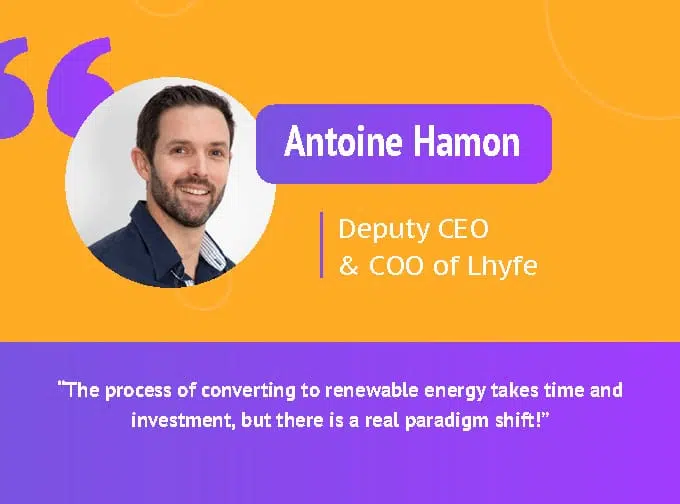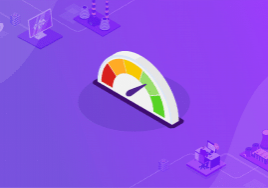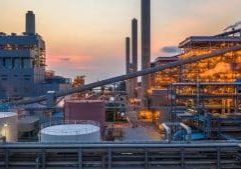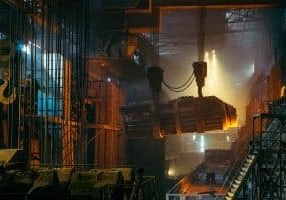
In this second article of our "Green Tech Interview" series, we give the floor to Antoine Hamon, Deputy CEO & COO of Lhyfe: an innovative company that provides green and renewable hydrogen. How does Lhyfe contribute to the reduction of greenhouse gas emissions (GHG)? Antoine Hamon explains.
What is Lhyfe's role in the fight against climate change?
What are your target markets? And how do you assess the maturity of these players to meet the climate challenges?
Our target markets are wherever fossil fuels are available.
- We work with the mobility actors :
- Communities (buses, garbage trucks...)
- Logistics (transport trucks, forklifts...)
- Heavy vehicles (trains, boats...)
- Light vehicles...
However, hydrogen is not the only solution on the market, the reduction of our uses and the electrification of vehicles are also options to keep in mind.
- We also work with industrialists. Today, fossil fuels or grey hydrogen - produced from hydrocarbons - are used in particular to make steel, glass, fertilizers, etc. The objective is to ensure that no GHGs are produced. The industrial use of hydrogen is a major vector for reducing GHG emissions worldwide.
In recent years, there has been real enthusiasm for these climate projects. Although they have been neglected for a long time, they are now being prioritized by our partners. The processes to convert - large industries, for example - take time and require investment, but we feel a real paradigm shift!
Why do you think renewable hydrogen is not more widespread?
What are the main problems that Lhyfe addresses? How do you approach them?
The problem of our generation remains GHG emissions. Solving it is a commitment we have made for the future of our children and their children.
There are 3 types or "colors" of hydrogen:
- Fossil hydrogen. We have a methane molecule that we will break down to produce hydrogen.
- Low carbon hydrogen. It is produced on the basis of nuclear energy.
- Renewable hydrogen. It is created from renewable energy.
At Lhyfe, we prefer renewable hydrogen, which is the only option that is sustainable in the long term. This means no waste is produced and risks are limited. The rest is the transition: if we want to see the long term, it is renewables that must be developed.
To do this, we are developing technologies on land and at sea - where we have a massive capacity to develop renewable energies (solar, wind, etc.). We can thus convert all our uses with an energy vector that will not emit CO2.
According to you, what is the role of digital and data in the greening of the economy?
There is a huge challenge in digital and data, if only for electricity.
"Data and digital intelligence allow us to optimize consumption, streamline, and reduce energy use."
Antoine Hamon, Deputy CEO & COO of Lhyfe
Data, through the optimization of algorithms, makes it possible to work on all processes as well as on energy consumption at all levels, including on an industrial scale.
All this while staying aware of the negative effects: like all hyper-powerful tools, they can have a harmful ecological impact if they are misused. We must therefore direct them towards what has a positive impact on society and focus on that!
What is your personal conviction for the evolution of the energy transition in the years to come?
Thank you to Antoine Hamon for sharing his opinion on this crucial topic with us. Today, the energy transition requires the optimization of our consumption - facilitated by digital technology - and the use of renewable energy, which we see is already available and accessible.
Want to learn more about METRON's Energy Management & Optimization System (EMOS)?










